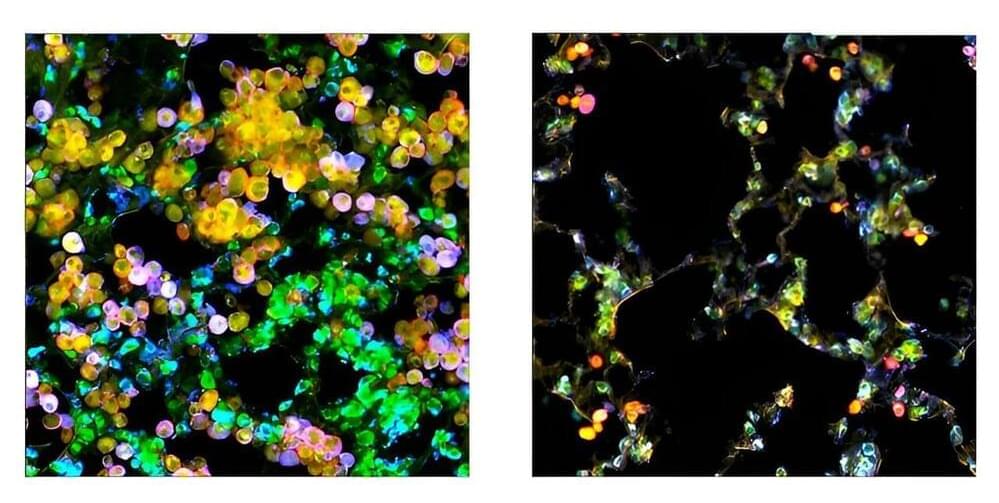Lung adenocarcinoma is the most common lung cancer and the cause of most cancer-related deaths in the United States. There are several ways lung adenocarcinoma can arise, one of which is a mutation in a protein called EGFR (epidermal growth factor receptor). Non-mutated EGFR helps cells grow in response to injury, but mutated EGFR promotes out-of-control growth that can turn into cancer.
Modern immunotherapies don’t work against EGFR-driven lung adenocarcinoma, and while some drugs exist to treat the cancer, patients typically develop a resistance to them within just a few years. This gap in the treatment tool chest inspired Salk Institute researchers to probe for weak spots in the cancer’s growth pathway.
The team discovered that EGFR-driven lung adenocarcinoma hijacks a specialized population of lung-resident immune cells called macrophages, which are designed to dispose of diseased and damaged cells, as well as maintain a delicate balance of protective lipids (fats) around lung alveoli, which are essential for breathing.
